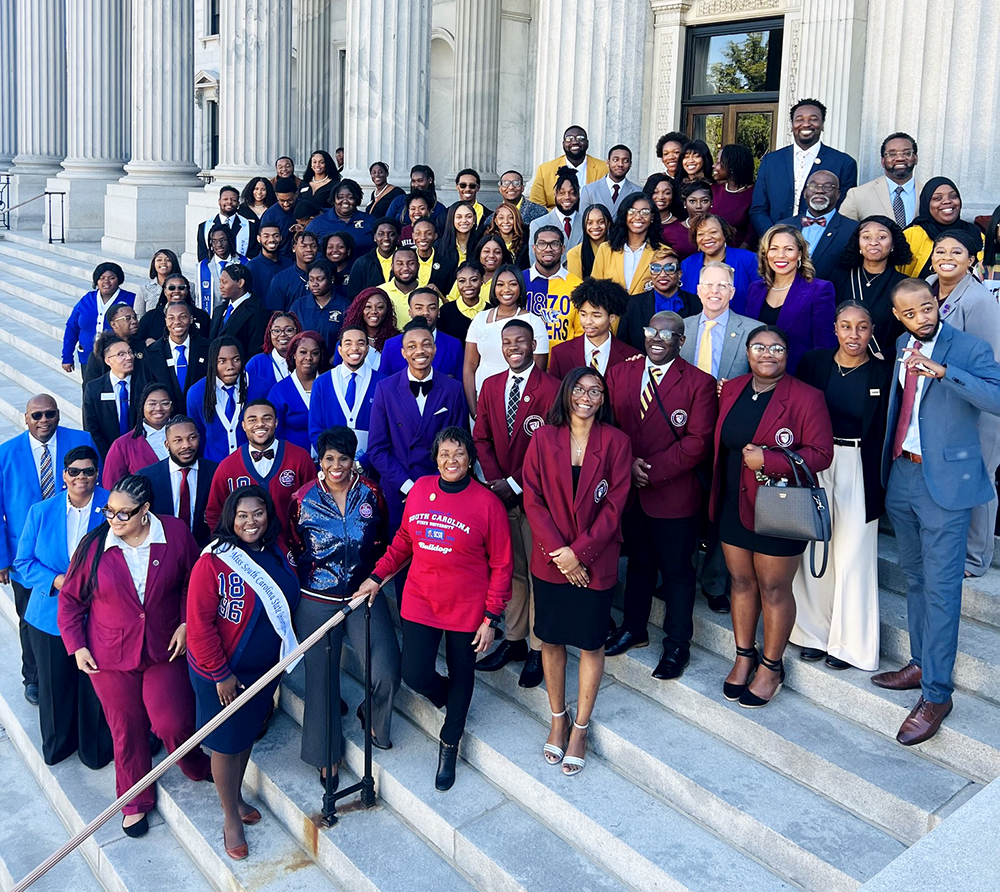
In this month’s newsletter we’re observing Black History Month and in that spirit I’d like to share with you the origins of SCICU’s five member institutions that are HBCUs.
These are stories of vision, perseverance, and faith.
Before we begin, I want to attribute much of what you’ll read to the campus websites and point out the colleges are presented in alphabetical order.
Allen University was founded by the African Methodist Episcopal (AME) Church in South Carolina under the leadership of Bishop John M. Brown in 1870. Originally named the Payne Institute in honor of Bishop Daniel A. Payne, a South Carolinian and noted advocate for Black education, the school was located in Cokesbury, South Carolina. During these early years the school fulfilled its mission of developing an educated clergy in the face of repression and violent opposition during the Reconstruction Era.
Benedict College, originally the Benedict Institute, was borne of the generosity of Bathsheba Benedict who in 1870 donated $13,000 towards a new school for recently freed slaves. In defiance of their previous condition, the money was used to buy a former plantation and the Institute operated in the former slave master’s mansion, in the words of its founder to prepare men and women to be a “power for good in society.”
Claflin University, the oldest HBCU in South Carolina, was founded in 1869 and named in honor of Lee Claflin, a prominent Methodist layman of Boston, and his son William Claflin, the governor of Massachusetts. Ardent abolitionists, these men harbored a great concern for higher education and the uplift of African Americans. Claflin University offered, for the first time in South Carolina, a quality higher education for men and women “regardless of race, complexion, or religious opinion.”
Morris College was founded in 1908 by the Baptist Educational and Missionary Convention of South “for the Christian and Intellectual Training of Negro youth.” The majority of Morris’ “founding fathers” were poor and without any formal learning, but they possessed an “unfaltering faith in God and a zeal to provide for others the educational opportunities they themselves were denied.”
Voorhees University, founded in 1897, would not have ever existed were it not for the tenacity of Elizabeth Evelyn Wright, who at the age of just 22 was determined to open a college along the lines of her mentor Booker T. Washington. The first location she chose burned down (twice), and timber at the second location was cut down to render it useless. After the land she intended at the third location was bought out from under her, the Voorhees Industrial School took root in Denmark, South Carolina, named for Ralph Voorhees, the New Jersey benefactor who donated $5,000 for land, buildings and equipment.
We salute the courage of these men and women who gave substance to their dreams, and honor their legacies of opportunity and excellence. Thanks to their work, generations of students have enjoyed the benefits of a college education.

 SCICU celebrates its five member HBCUs on the third annual S.C. HBCU Day
SCICU celebrates its five member HBCUs on the third annual S.C. HBCU Day